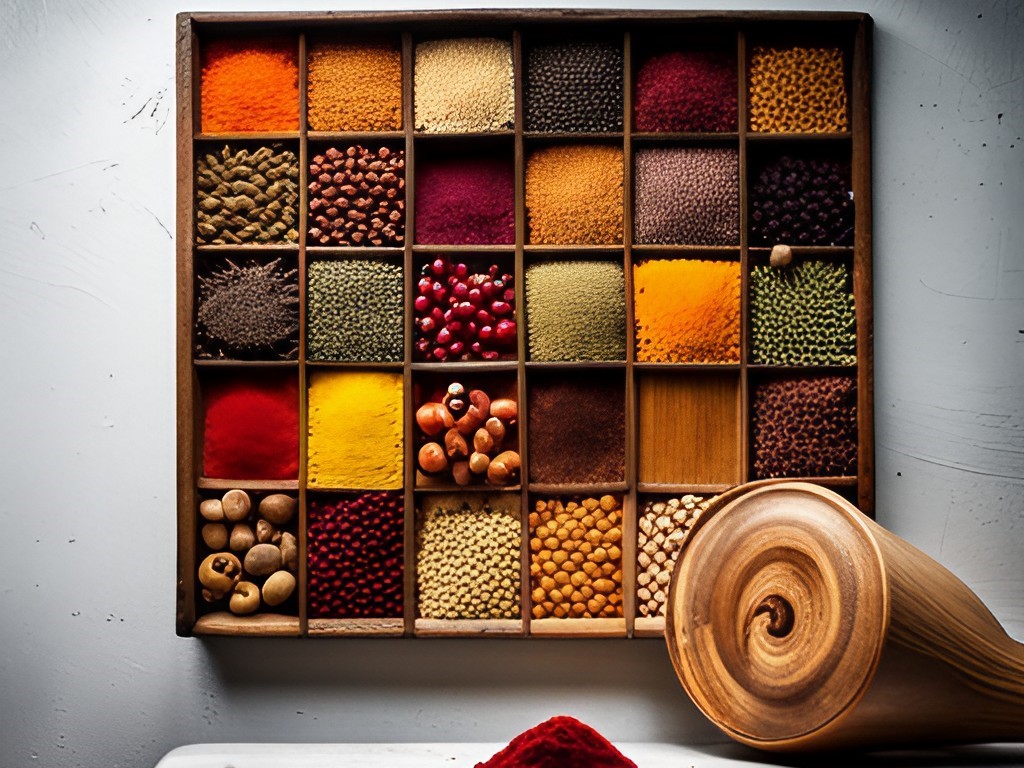Are you eager to know about the best spices and herbs for homemade remedies? Or Have you ever wondered how our ancestors treated common illnesses and ailments before modern medicine came into existence? Well, it’s quite simple – they relied on the power of nature, specifically herbs.
Herbal medicine has been used for centuries to help people heal and regain their health. In fact, many of the drugs we use today are derived from plants that were originally used as herbal remedies. I also prefer using natural remedies whenever possible since they are inexpensive, easy to use, and often have fewer side effects than manufactured drugs. Thus, I want to share the top 20 spices and herbs for homemade remedies. I have used some of them myself and can attest to their effectiveness. So read on and learn about the healing power of nature!
An Overview of Herbal Medicine and Its Benefits

Herbal medicine refers to the use of plant-based remedies to prevent and treat a variety of health problems. These remedies have been used throughout history, dating back to the ancient Egyptians, and are still widely used today. The basic idea behind herbal medicine is that plants contain active ingredients that can help improve health. These ingredients can come in the form of leaves, flowers, roots, or other parts of the plant, which offers many benefits, including:
1: Chemical-Free
One of the most significant benefits of herbal medicine is that it is entirely natural and chemical-free. Unlike commercially produced medicine, herbal medicine contains no harmful ingredients that can lead to damaging side effects that can potentially harm the body. This alternative form of medicine is perfect for those looking for a more natural approach to healthcare.
2: Holistic Healing
Herbal medicine takes a holistic approach to healing the body. Rather than just treating symptoms, like conventional medicine often does, herbal medicine seeks to address the underlying cause of illness and provide long-lasting relief. By treating the whole person – body, mind, and soul – herbal medicine can boost the overall health and wellness of the individual.
3: Affordable
Another benefit of herbal medicine is that it is often much more affordable than traditional medicine. By using plants and herbs that are readily available, the cost of production and distribution of herbal medicine is generally lower. Additionally, many people can grow and harvest their medicinal herbs themselves, significantly reducing costs.
4: Offers a Range of Options
Herbal medicine offers a range of medicinal herbs and plants with various uses and benefits. From chamomile, which can help with sleep and relaxation, to turmeric, a potent anti-inflammatory, herbal medicine provides people with many options. Moreover, herbal medicine is excellent for complementing traditional medicine, making it a perfect addition to any healthcare routine.
5: It Builds a Strong Body
Herbal medicine can help to boost the immune system, clear the skin, improve digestion, and relieve stress. When people include herbal medicine in their daily routine, their body becomes healthier and more resilient over time. Herbal medicine aims to help people achieve optimal health in all aspects of their life.
The many benefits of herbal medicine make it an excellent option for those looking for a more natural approach to healthcare.
The Best Spices and Herbs for Homemade Remedies
Now that you know the basics of herbal medicine, let’s look at the top 20 spices and herbs for homemade remedies.
1: Aloe Vera
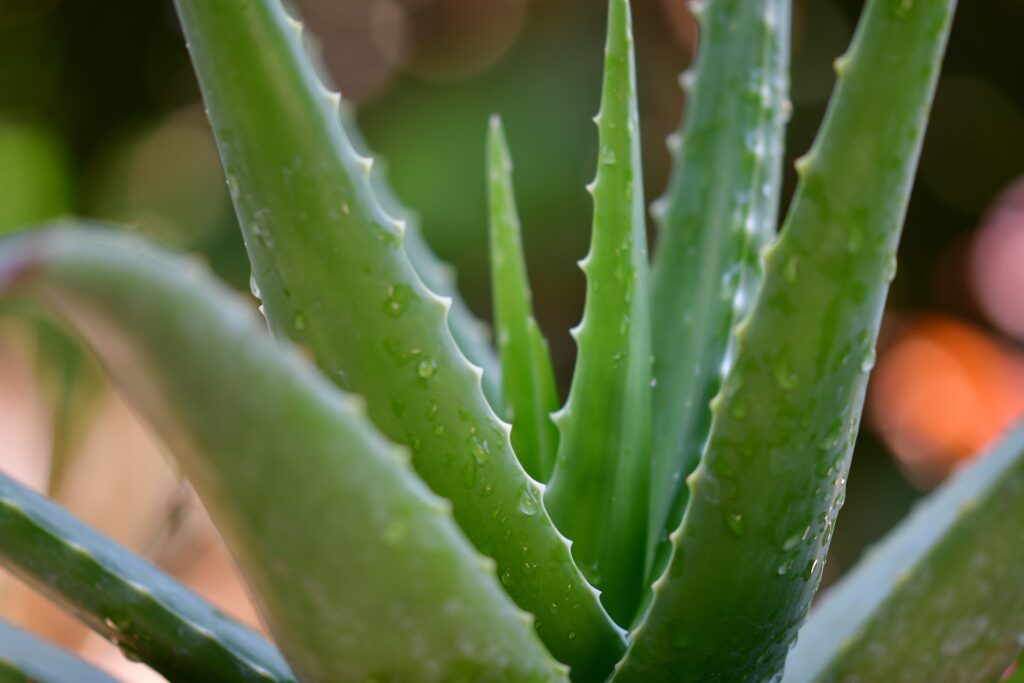
Aloe vera is a succulent plant from the lily family, native to parts of North Africa and the Middle East. As far back as Ancient Egypt, it has been used for centuries as a natural healing agent. The Egyptians called it “the plant of immortality” because of its ability to treat skin disorders and other ailments. You can use aloe vera in different ways:
Skin
One of the most common benefits of Aloe Vera is its ability to soothe and heal the skin. Aloe Vera is an excellent remedy to add to your skincare routine if you struggle with acne or dry skin. Applying Aloe Vera gel on the affected areas helps to reduce inflammation, promote healing, and moisturize the skin. To use it in a homemade remedy, combine Aloe Vera gel with honey and apply it as a face mask. Rinse your face after 10-15 minutes, leaving you with refreshed, glowing skin.
Digestive Health
The plant’s gel has antibacterial properties that help to reduce inflammation in the digestive system, promoting better digestion. You can use Aloe Vera in your homemade remedy by mixing the gel with water or juice, but remember to remove the yellow layer of latex first to avoid digestive discomfort.
Hair Care
Aloe Vera is your solution if you’re dealing with hair-related issues such as dandruff or hair loss. Aloe Vera brings moisture and hydration to the scalp, reducing inflammation and promoting blood circulation. It also provides a protective layer of moisture that helps reduce hair breakage. In order to use Aloe Vera in a homemade remedy, combine its gel with coconut oil and apply it to your hair as a hair mask. Leave it for 15 minutes, then rinse with warm water.
2: Cardamom
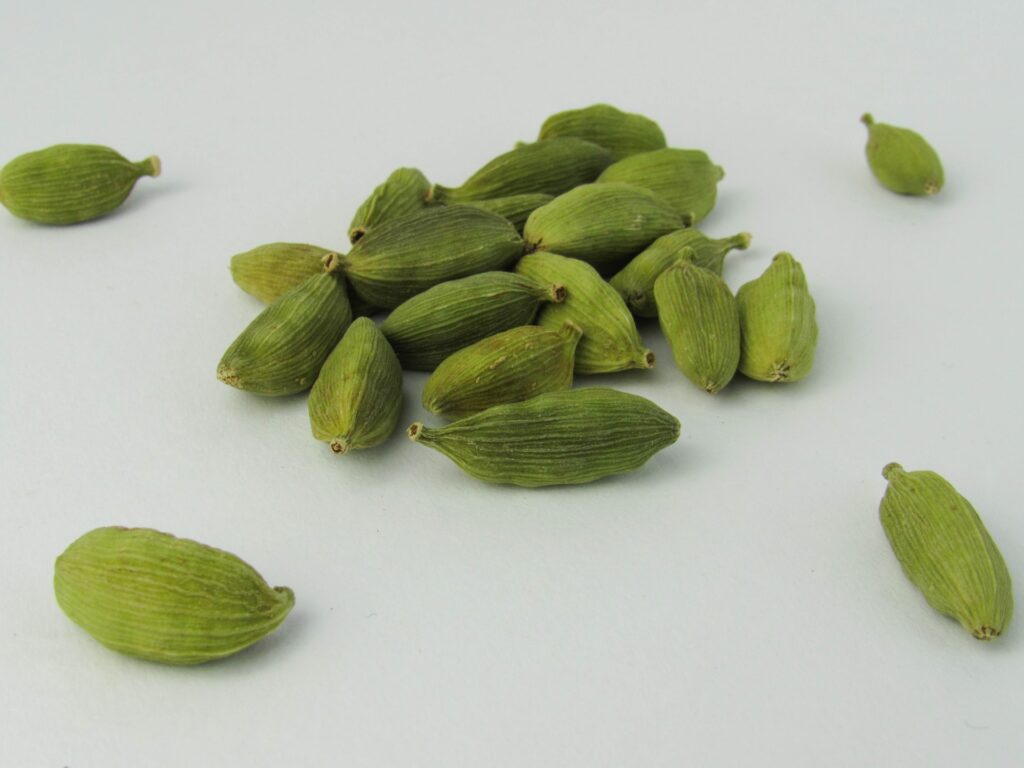
Cardamom is a fragrant spice native to India and parts of Southeast Asia. It has been used for centuries for its medicinal properties, as well as its distinct flavor. The use of cardamom dates back to ancient times, with evidence suggesting it was cultivated and used in the Middle East over 4,000 years ago. Cardamom offers a range of health benefits, including:
Cough and Cold
Cardamom is known for its strong antibacterial properties and is an excellent natural remedy for colds and coughs. It can help relieve congestion, coughing, and even sore throat. According to research, cardamom contains essential oils that help to loosen mucus and reduce inflammation in the respiratory system. A hot cup of cardamom tea helps reduce coughing and clears the nasal passages. Add a few crushed cardamom pods to boiling water to make cardamom tea, let it simmer for 5-7 minutes, strain, and add honey.
Improves Kidney Function
Cardamom is beneficial in maintaining the overall health of the urinary system. It helps to flush out toxins from the body, which helps keep the kidneys healthy. According to Ayurveda, an Indian medical system, cardamom is used to improve kidney function and treat urinary tract infections and kidney stones. It also helps regulate blood pressure, an important factor in maintaining the health of the kidneys. In order to use, mix one teaspoon of powdered cardamom in water and consume daily.
Oral Health
Cardamom is known for its soothing and refreshing properties, which makes it an excellent ingredient for maintaining oral hygiene. It helps fight bad breath, prevents tooth decay, and keeps gums healthy. It contains antibacterial compounds that inhibit the growth of cavity-causing bacteria. Furthermore, chewing cardamom seeds can help in the secretion of saliva, which is essential for preventing cavities. To incorporate it into your oral care routine, mix a few drops of cardamom essential oil with warm water and use it as a mouthwash.
3: Black Pepper
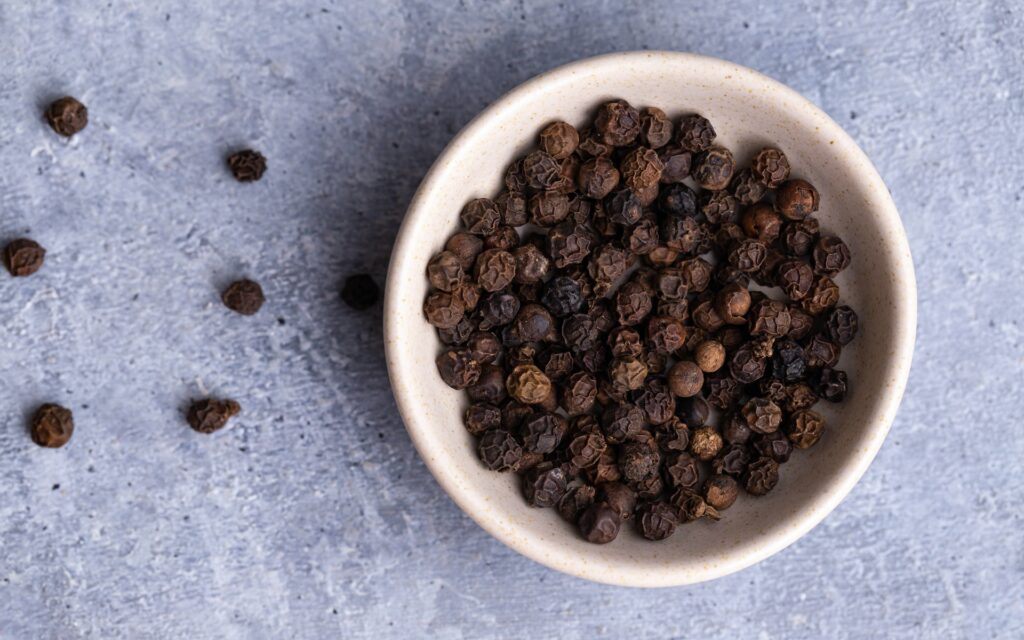
Black pepper was used medicinally by ancient cultures, such as the Greeks and Romans, who believed that it had healing properties. In more recent times, black pepper has become a staple ingredient in many dishes around the world, adding an unmistakable depth of flavor to any dish.
Below are the benefits of black pepper and how to use it to create effective remedies.
Improves Digestion
Black pepper contains a compound called piperine that helps stimulate the digestive juices in the stomach. This, in turn, helps improve digestion and prevents digestive problems like flatulence, constipation, and bloating. To use black pepper for digestive problems, mix a teaspoon of freshly ground pepper with a cup of warm water and drink it before a meal. You can also add it to your food while cooking.
Relieves Congestion
Black pepper has natural decongestant properties that make it useful for relieving respiratory congestion. When added to hot water, the steam from black pepper helps soothe the respiratory system and reduce inflammation. To use black pepper for congestion, boil a teaspoon of freshly ground pepper in a cup of water and inhale the steam. This can help relieve nasal congestion caused by colds, allergies, or sinus infections.
Combats Inflammation
Inflammation is a leading cause of many chronic diseases. Black pepper contains anti-inflammatory compounds that help reduce inflammation in the body. These compounds also help alleviate joint, arthritis pain and stiffness caused by conditions like arthritis. To use black pepper for inflammation, mix a teaspoon of ground pepper with a tablespoon of honey and consume it daily.
Aids Weight Loss
Black pepper contains a compound called piperine that has been shown to boost metabolism and aid in weight loss. This compound helps the body burn more calories by increasing thermogenesis – the process by which the body generates heat. To use black pepper for weight loss, sprinkle it on your food or take a piperine supplement.
Enhances Brain Function
Black pepper contains compounds that help improve cognitive function and memory. Piperine, the active ingredient in black pepper, has been shown to cross the blood-brain barrier and enhance the efficacy of certain neurotransmitters. To use black pepper for brain health, mix a teaspoon of black pepper with a teaspoon of coconut oil and consume it daily.
4: Cinnamon
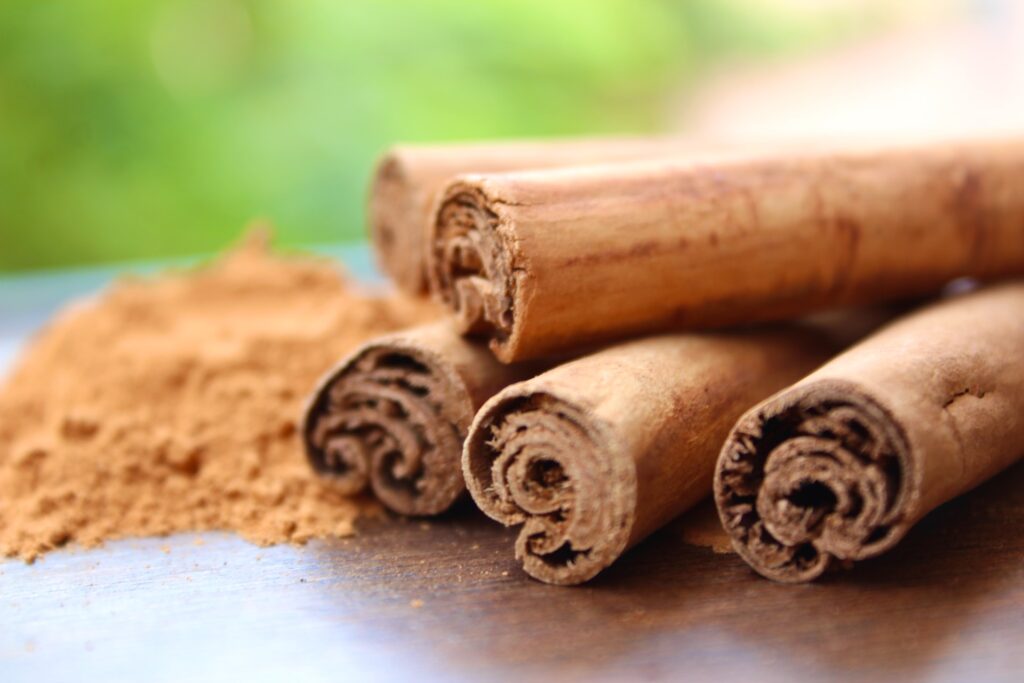
First discovered in Southeast Asia, cinnamon has been used for its sweetness, culinary, and medicinal properties since ancient times, and even today, it continues to be popular among health enthusiasts. Cinnamon’s health benefits are numerous as it can help in:
Treating Sore Throat
Cinnamon can be a natural remedy to ease pain and discomfort. Cinnamon is rich in anti-inflammatory and antibacterial properties that fight against bacteria-causing infections and help reduce inflammation. A simple and effective way to use cinnamon for treating sore throat is by mixing it with honey and warm water. This combination helps soothe the throat and clears any mucus that may aggravate the suffering.
Controls Blood Sugar
Diabetes has become a widespread problem globally, and cinnamon can assist in controlling blood sugar levels. The spice has been found to have an active compound called cinnamaldehyde that aids in mimicking insulin’s function, reducing insulin resistance. A study showed that those who consumed cinnamon daily had a drop in their fasting blood sugar level. Cinnamon can be added to a daily diet by sprinkling it over yogurt, oatmeal, or tea.
Lose Weight
Battling weight issues is a constant struggle for many people. Cinnamon can help control the weight gain from consuming sugar and refined carbohydrates. The spice is rich in antioxidants that improve insulin sensitivity and assist in metabolism while suppressing appetite. Regulating the body’s natural insulin response helps prevent fat storage. Adding cinnamon to your daily consumption of foods and drinks like coffee, smoothies, or salads can aid in losing weight in the long run.
5: Carom Seeds
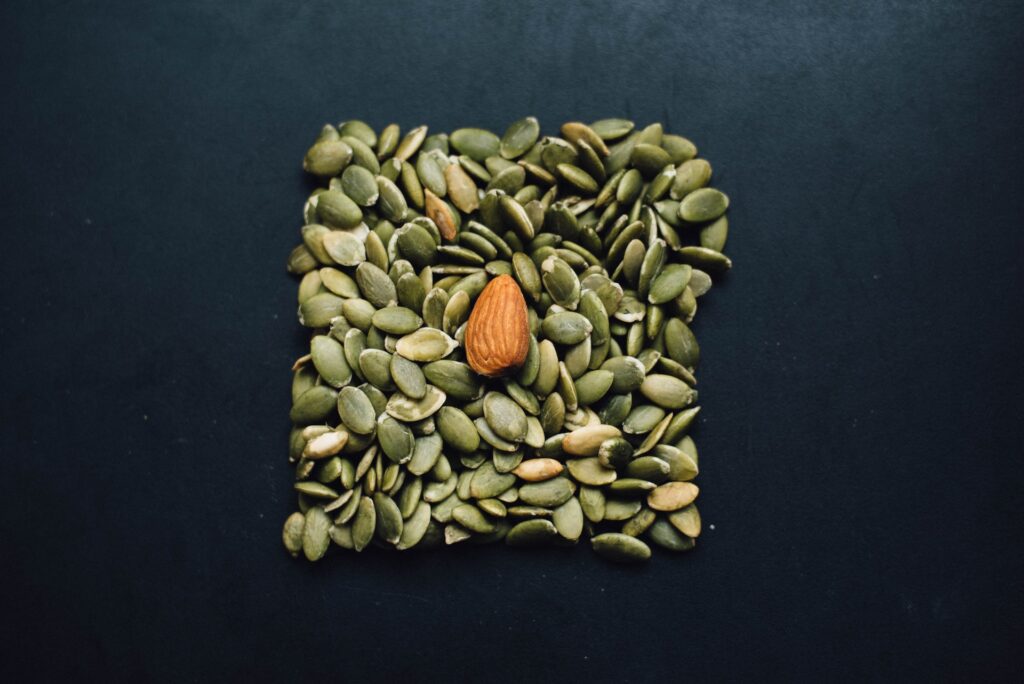
Carom seeds, also known as ajwain, have been used in Ayurvedic medicine for centuries. These small brownish-grey seeds are more than just an ingredient in Indian cuisine – they boast many medicinal properties that make them a popular home remedy. Below are the ways to use carom for common ailments and incorporate it into your homemade remedies.
Dry Cough
Carom is a natural expectorant that can help reduce dry cough severity. The spice’s active ingredient, thymol, can loosen the mucus in your chest and make it easier to cough it up. To use carom for dry coughs, heat 1 tablespoon of the seeds in a pan and crush them into a powder. Mix the powder with a teaspoon of honey and consume it twice a day for a week. You can also try boiling carom seeds in water and inhaling the steam for relief.
Stop Flatulence
Flatulence can be embarrassing and uncomfortable. Carom can help ease digestive discomfort and reduce flatulence. The spice’s active compound, thymol, has anti-inflammatory and antispasmodic properties that can alleviate abdominal cramps and bloating. To use carom for flatulence, mix 1 teaspoon of the seeds with a pinch of salt and chew it slowly after meals.
Joint Pain
Carom’s anti-inflammatory and analgesic properties make it a popular remedy for joint pain. The spice can help alleviate swelling and joint pain caused by arthritis and gout. Crush 1 tablespoon of the seeds and mix it with 2 teaspoons of warm mustard oil. Massage the mixture on the affected area for 10-15 minutes twice daily for a few weeks for relief.
Menstrual Cramps
Carom can also help reduce the intensity of menstrual cramps. The spice’s antispasmodic properties make it an effective natural remedy for abdominal pain and discomfort during menstruation. Boil 1 teaspoon of carom seeds in a cup of water for a few minutes. Strain the mixture and drink it warm twice a day for a few days, starting a day or two before your expected period.
Skin Infections
Carom’s antibacterial properties make it a useful ingredient for treating skin infections. The spice can help prevent the growth of bacteria and fungi that cause skin infections like acne, pimples, and eczema. Mix 1 tablespoon of carom powder with a teaspoon of honey to make a paste. Apply the paste to the affected area and leave it on for 20 minutes before rinsing it with warm water.
6: Fenugreek
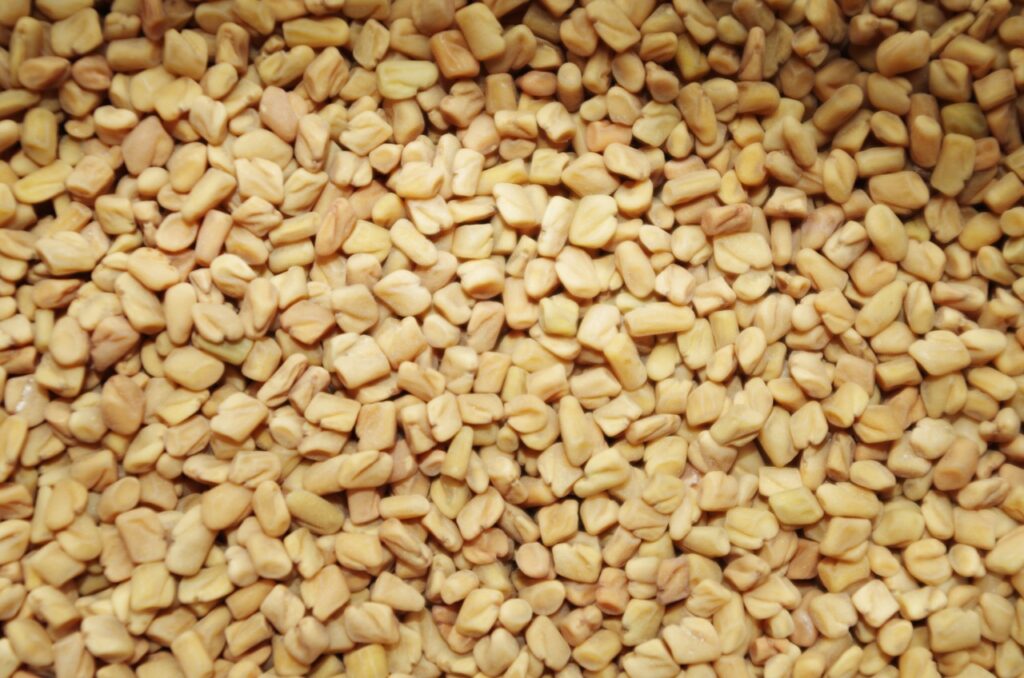
Fenugreek is an ancient herb renowned for its medicinal properties. The leaves, seeds, and plant sprouts are edible and widely used in Indian cuisine. Fenugreek has many therapeutic benefits and can be used to treat a range of health issues:
Heart Health
It has been shown to have positive effects on heart health. Fenugreek seeds are high in fiber and can help lower cholesterol levels, reducing heart disease risk. Fenugreek also contains trigonelline, which has been shown to improve blood sugar control. To incorporate fenugreek into your diet for heart health, try adding it to soups, stews, or curries.
Lactating Mothers
Fenugreek seeds are known to help increase milk production in breastfeeding moms. They contain phytoestrogens, which are plant compounds that mimic the effects of estrogen. Fenugreek can also be used to ease breast pain and support breast health. To use fenugreek for lactation, you can make tea by soaking fenugreek seeds overnight and drinking the infused water in the morning. Another option is to add fenugreek to your cooking or take a fenugreek supplement.
Hair Growth
Fenugreek is a great natural remedy for promoting hair growth. It contains proteins and amino acids that help strengthen hair follicles and prevent hair loss. Fenugreek also contains lecithin, which helps moisturize hair and prevent dandruff. Soak fenugreek seeds in water overnight and grind them into a paste for hair growth. Apply the paste to your scalp and hair and leave it on for 30 minutes before rinsing with warm water.
Skin Care
Fenugreek is also used in skin care remedies. It can help reduce inflammation and irritation and is useful for conditions like eczema and acne. The paste made from fenugreek seeds can act as a natural exfoliant, helping to remove dead skin cells and reveal smoother, brighter skin. To use fenugreek for skin care, mix the ground seeds with water to form a paste and apply it to your face. Let it sit for 10 minutes before rinsing it with warm water.
7: Turmeric
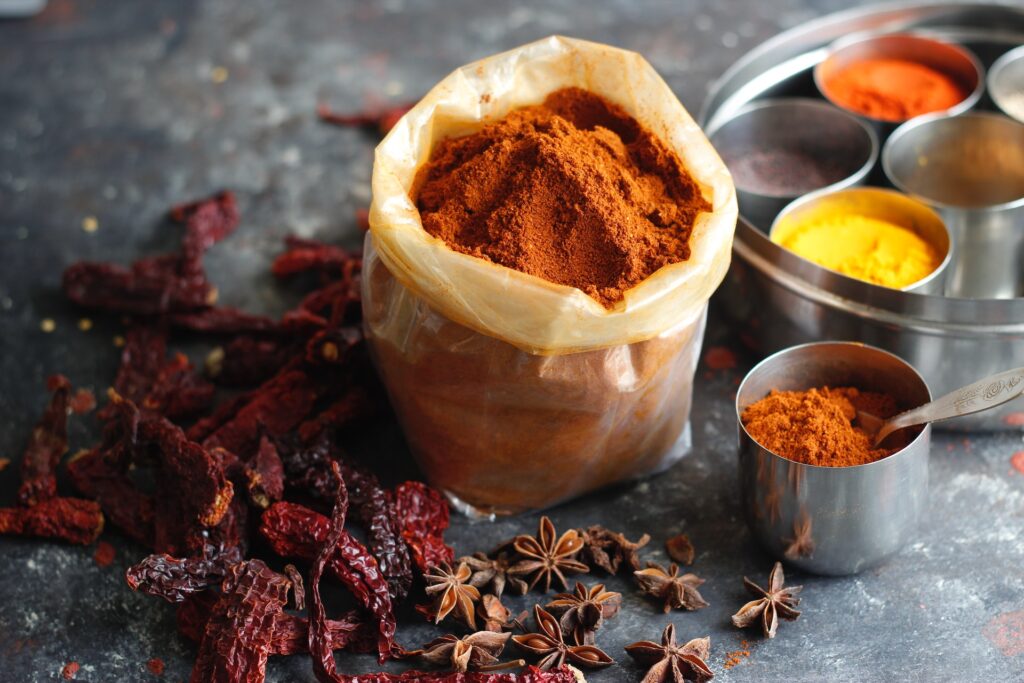
Turmeric is one of the world’s most widely used and studied natural remedies. The vibrant yellow-orange spice has been used for centuries as an Ayurvedic medicine to treat various ailments.
Anti-inflammatory Properties
Turmeric is known for its potent anti-inflammatory properties that help reduce inflammation. Studies have shown that curcumin can target multiple inflammation pathways that contribute to chronic diseases, including arthritis, heart disease, and even cancer. To make a natural anti-inflammatory remedy, mix a teaspoon of turmeric powder with warm milk and honey and drink it daily.
Immune-Boosting Benefits
Turmeric’s active ingredient, curcumin, has strong antioxidant properties that help protect against free radicals and boost immunity. Turmeric can also help improve overall immune function by stimulating antibody responses and activating immune cells in the body. You can make a natural immune-boosting tonic by mixing turmeric powder with freshly squeezed lemon juice and honey.
Digestive Health
Turmeric has been traditionally used to aid digestion and reduce bloating and gas. Curcumin stimulates secretions of digestive enzymes, which help break down food and improve digestion. Turmeric can also help soothe and calm the digestive tract, making it a natural remedy for people with irritable bowel syndrome. To make a natural digestive remedy, mix a teaspoon of turmeric powder with warm water before meals.
Skin Health
Turmeric’s antiseptic and antibacterial properties make it an excellent natural remedy for skin conditions like acne, eczema, and psoriasis. Turmeric can help reduce inflammation, redness, and itchiness associated with these conditions. You can make a natural turmeric face mask by mixing turmeric powder with honey and yogurt to create a paste that you can apply to your face.
Pain Relief
Turmeric can also help relieve pain associated with various conditions, including arthritis and menstrual cramps. Curcumin has been shown to have pain-relieving properties by blocking inflammatory cytokines that cause pain and swelling. To make a natural pain relief remedy, mix a teaspoon of turmeric powder with coconut oil and apply it to the affected area.
8: Peppermint
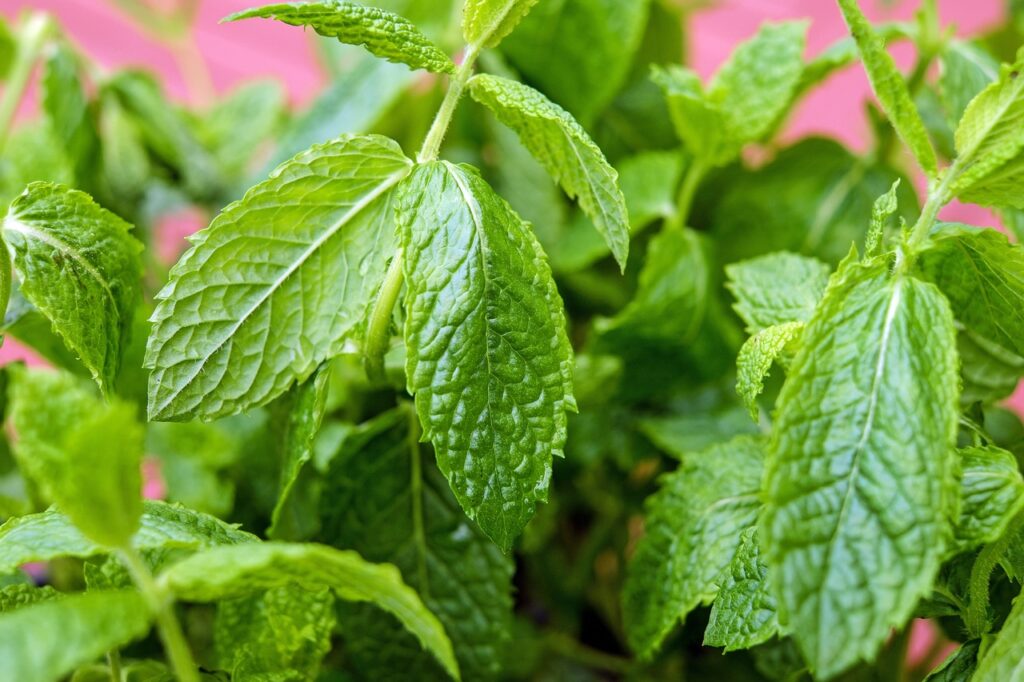
The refreshing scent and taste of peppermint make it a favorite in teas, candies, and essential oils. Peppermint has many health benefits and can be used to treat:
IBS Pain
Peppermint is commonly used to reduce symptoms of Irritable Bowel Syndrome (IBS), such as abdominal pain, bloating, and diarrhea. Peppermint relaxes the muscles in our digestive system, allowing our gut to function better. According to a research study, taking peppermint oil capsules for four weeks helped reduce IBS symptoms in 75% of the participants. You can also make peppermint tea by steeping fresh or dried peppermint leaves in hot water for 5-10 minutes. Drink it after meals to promote proper digestion and relieve IBS pain.
Reduce Nausea
If you suffer from motion sickness, morning sickness, or general nausea, peppermint can provide relief. The menthol in peppermint has a cooling effect on our stomach muscles, which can alleviate nausea. You can use peppermint essential oil or dried peppermint leaves to make a soothing tea or inhale the scent directly from the bottle. If you’re feeling adventurous, try making peppermint-infused ice cubes to suck on when feeling queasy.
Headache and Migraine Relief
Peppermint has natural muscle relaxant properties that can help reduce tension headaches and migraines. When applied topically, peppermint oil can provide a cooling and soothing effect on the temples. Mix a few drops of peppermint oil with a carrier oil such as coconut oil and gently massage it into your temples, forehead, and neck. You can also try inhaling peppermint oil directly from the bottle or diffusing it in a room to ease your symptoms.
These are my top 8 natural remedies that you can use to improve your health and well-being.
Disclaimer: Please consult a doctor or medical professional before using natural remedies to ensure they are safe. Note that some of these remedies may not be suitable for everyone and can have adverse side effects.
Frequently Asked Questions
How do I prepare and store homemade remedies using spices and herbs?
Preparing homemade remedies using spices and herbs is easy. Start by choosing the best quality herbs and spices that are fresh and organic. You can purchase them from a local natural food store or online. Next, mix the ingredients in a bowl or blender and store them in a jar with a tight-fitting lid. Keep in mind that storing them in a cool, dry place away from direct sunlight can help preserve the potency of the herb or spice. It’s also important to label each jar with the name and date of the remedy.
How do I incorporate spices and herbs into my daily routine for maximum health benefits?
You can incorporate spices and herbs into your daily routine by adding them to your meals or drinks. For example, adding ginger to your tea or smoothie can help reduce inflammation and boost immunity. You can also use turmeric as a spice in your cooking to help improve digestion and promote healthy skin. Another great way to incorporate herbs and spices is by making herbal tea blends that you can consume throughout the day to provide various health benefits.
Are there any precautions when using spices and herbs for homemade remedies during pregnancy or breastfeeding?
While herbs and spices can benefit overall health, it’s important to exercise caution during pregnancy or breastfeeding. Some herbs can stimulate contractions or affect milk supply; some spices might cause irritation or allergic reactions. It’s always best to consult your healthcare provider before using any remedies during pregnancy or breastfeeding.
How do I know the quality and authenticity of the spices and herbs I use for remedies?
Quality and authenticity are crucial when using spices and herbs for remedies. Look for organic and sustainable herbs free from harmful chemicals and pesticides. Check the label for the country of origin and ensure the company follows stringent quality control measures to ensure the purity and potency of the herb.
Final Words
After researching, I’ve learned that adding spices and herbs to homemade remedies is a healthy alternative and amplifies the remedy’s effectiveness. I was fascinated to discover that the plants I often overlook in my spice racks have medicinal benefits that could help me ease a plethora of ailments.
The possibilities are endless, from ginger and turmeric’s anti-inflammatory properties to peppermint’s soothing effects on stomach aches. It’s a win-win situation because not only are we taking care of ourselves, but we’re also enjoying delicious flavors in our meals. The next time you feel under the weather, try incorporating some of these spices and herbs for homemade remedies, and let the natural healing process begin!

